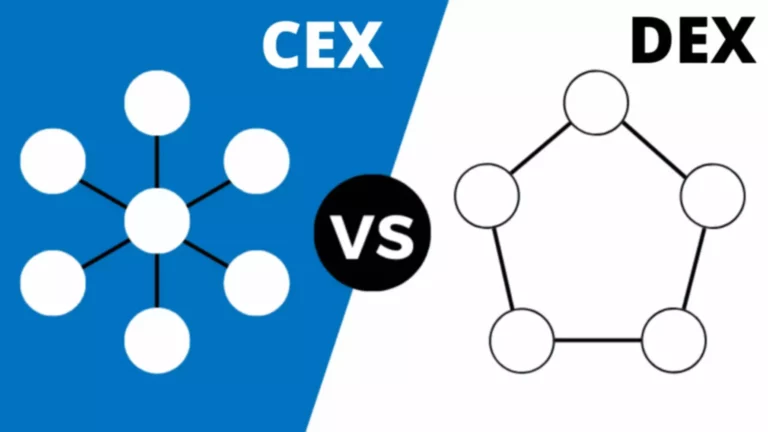Content
As you sign transactions, you prove that they originated from the wallet owner—yourself. It’s comparable to your ATM PIN code and, therefore, should be kept secret and safe because whoever knows your private key has access to your funds. The public key, also known as your wallet address, is shared publicly. It is what others use to send funds to your wallet—think of it as your bank account number. As it is Fintech a non-custodial wallet, this means you are in full control of your own private keys at all times.

FAQ: Crypto Wallet vs. Exchange
However, each one fulfills distinct roles for cryptocurrency investors. These exchanges provide a marketplace for cryptocurrency investors and traders to access liquidity and diversify their portfolios. A crypto exchange wallet https://www.xcritical.com/ is a type of digital wallet provided by crypto exchanges. These wallets allow users to store, receive, and send crypto assets directly within the exchange’s ecosystem. They are a part of the service portfolio designed for users who trade on the exchange platform. A crypto wallet is a digital application or device that allows you to securely store, send, and receive cryptocurrencies.
Step 3: Initiate the transfer from your custodial account
When considering a wallet or exchange, reflect on your primary activities. Are you looking to what is a crypto exchange vs wallet trade frequently, or is secure, long-term storage more important? Wallets are ideal for securely holding cryptocurrencies, while exchanges provide a platform for trading and accessing various markets. In terms of security, the digital wallet has a clear advantage, especially if you’re planning to store large amounts of assets for a long time.
How do I move crypto off an exchange?
Hardware wallets, also known as cold wallets, store your crypto offline (i.e., cold storage) on a hardware device. Most popular hardware wallets support ETH and ERC-20 token storage. No, you cannot use a crypto wallet to directly buy or sell cryptocurrencies. A crypto wallet is solely used for securely storing and managing your cryptocurrencies.
Custodial Ethereum Wallet: Crypto.com App
These platforms make it easy to swap one crypto for another or exchange your traditional money for crypto. Some exchanges offer extra features too, like margin trading or futures contracts. Crypto exchanges are like digital marketplaces for buying and selling digital coins. They’re the go-to spots for folks looking to swap their cash for crypto – or vice versa.
Critical security features include private keys and seed phrases. Additionally, wallets often use encryption, making it extremely difficult for unauthorized users to access your assets. Accessibility also varies significantly between crypto wallets and exchanges. Wallets offer immediate access to funds for sending and receiving cryptocurrencies, accommodating quick transactions directly from personal devices. This accessibility is beneficial for everyday use and small-scale transactions, supported by intuitive interfaces designed for user convenience. They both serve as essential gateways for managing and trading digital assets.
- While many exchanges have security measures in place, maintaining control of your assets in your own wallet is generally more secure.
- Wallets can be software-based, such as mobile or desktop applications, or hardware-based, like physical devices specifically designed for storing cryptocurrencies securely.
- The private key, however, must be carefully safeguarded, as anybody who gets their hands on it will be able to take control of your holdings.
- While some cryptocurrency wallets include built-in exchange features, full-fledged exchanges usually offer better conditions for swapping and buying crypto coins and tokens.
- What a wallet actually “stores” is your private key, without which no crypto transactions would be possible.
To sum up, crypto exchanges and wallets are essential, but exchanges are generally used for trading and wallets are for secure storage. If you are simply looking to buy, store, and sell ETH and Ethereum-based ERC-20 tokens, the Crypto.com App is a popular option. The App offers access to buying and selling ETH with fiat, cryptocurrency, Apple Pay, Google Pay, and credit/debit card.
This guide explains the distinctions and helps users choose based on their strategy. Factors to consider include security, accessibility, and transaction types. The article explores core functions, security aspects, and types of wallets and exchanges to meet users’ informational needs. Crypto exchanges are designed to be user-friendly, providing a host of features that streamline the trading experience.
Decentralized exchanges operate without a central authority and enable direct peer-to-peer transactions on the blockchain. They provide users privacy and complete control over their funds since trades are executed directly from wallet to wallet. Trading platforms typically support a vast array of digital assets, allowing users to buy, sell, and trade numerous different cryptocurrencies on a single platform. This makes them an accessible gateway to the world of digital assets, particularly for those looking to diversify their portfolio with various cryptos. When you deposit assets into a trading platform, the platform holds the private keys on your behalf. While this might offer convenience, it means you don’t have full control over your assets.
So, it’s essential to grasp how crypto wallets and exchanges differ in the crypto world. Wallets are best suited for secure, long-term storage of digital assets, giving users full control over their private keys. Ultimately, crypto exchanges offer user-friendly trading and a wide range of features. But, if you want the added security a crypto wallets offer, consider solutions that integrate the two. However, to bridge this gap, many digital wallets now integrate directly with trading platforms. They can securely store their holdings while using the trading platform’s user-friendly interface for transactions.
It’s like choosing between a safe and a bank – each has its perks and quirks. Next up, we’ll look at some security risks that come with all these perks. If you lose your keys, you lose access to your crypto… forever.

To manage crypto wisely, focus on a strategy that considers tight security, a smooth user experience, and sticking to the rules. Crypto wallets boost security by letting users manage their own keys. Cold wallets, like hardware ones, increase this by keeping keys offline.
Each serves a unique and essential role in the world of digital assets. A digital wallet is primarily a storage solution for digital funds. Much like a physical wallet holds your cash and cards, it securely stores your digital currencies.
In the case of an XMR wallet, for example, it’s specifically designed to accommodate the privacy-focused nature of Monero transactions. Choosing between a crypto wallet and an exchange can be overwhelming, especially for new users. This comprehensive comparison will walk you through the pros and cons of both options so that you can make an informed decision. From security to fees, we’ll cover everything you need to know to help you get started on your cryptocurrency journey. Wallets and exchanges are two cornerstone components of cryptocurrency — with the majority of crypto activity involving one or the other (and sometimes both).
